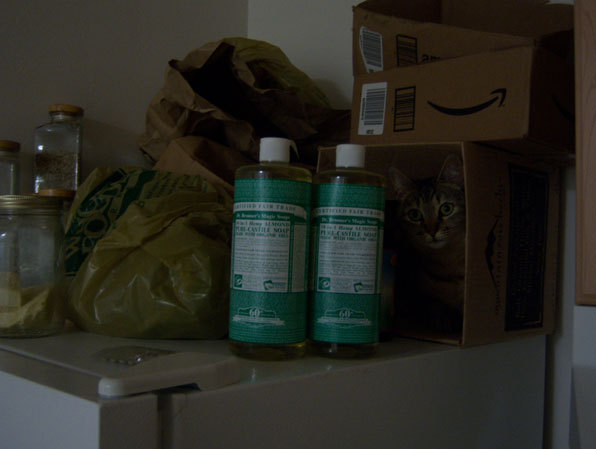JohnDenver wrote:I've often thought that moving to the country is one of dumber things you could do in response to peak oil.
My reasoning for this is simple: people in the country have a massive dependence on cars and gasoline. For example, my brother used to live on a ranch in the extreme boondocks of Idaho (the area was only electrified in the 1980s) and he and his wife had to drive about 100 miles to go to the supermarket.
This is a really good snippet to elaborate on.
People, in looking for that great "doomstead", move out to the country, but drag some really inappropriate habits with them.
In your particular example, supermarket dependence for perishables, yet living on a piece of property that could produce all needed perishables, fresh. They should be getting ALL their milk, cheese, butter, meat, and such from that ranch, and perhaps also most of their carbohydrate needs (potato, grain, fruit). Instead, they choose to drive to the supermarket for steaks and one gallon jugs of milk.
Now, there is nothing inherently wrong with a 100 mile trip to the market, round trip cost of the travel is about $60 and 4 hours of time. The question is, how many $$ of groceries, are they buying per $$ of trip.
A comparison point, I want some fresh bagels and cream cheese this morning, so I hop on my bike, peddle a mile and a little to the grocery store, buy $15 worth of groceries (chicken on sale or something too) and peddle home. Net, $15 worth a groceries, and an amortized cost on the bike of say 20 cents. This is just about as cost efficient as you can get.
To get equivalent value for your ranch dwellers, they need to buy $4500 worth of groceries. Can they do that on a weekly shopping trip? No. Monthly, no. Semiannually? Yep. Hook the trailer to the duelly, and drive to town, spend $4500 on the non perishables you would buy during that time (grocery, canning supplies, hardware, tools, and any other townie stuff) if you lived close, and then leave at the end of the day with a ton or two of supplies, and don't come back for six months.
How many are ready to give up contact with town for six months at a time? Thats the real question.
Now, common comparisons are no where near that extreme, someone on the gulf coast, or OK or Mid west, is almost certainly within 50 miles of a suitable market; and most urban dwellers still do not bike or walk to the grocery store; even when I lived amongst a few thousand people within walking distance of a grocery store, they would choose to drive their cars to them, instead of walking. Your ranching friends could likely have sustained a pattern of monthly trips, $500-$1000 purchase amounts, and kept their current level of efficiency and still lived on the ranch.
Yes, we are. As we are.
And so shall we remain; Until the end.





